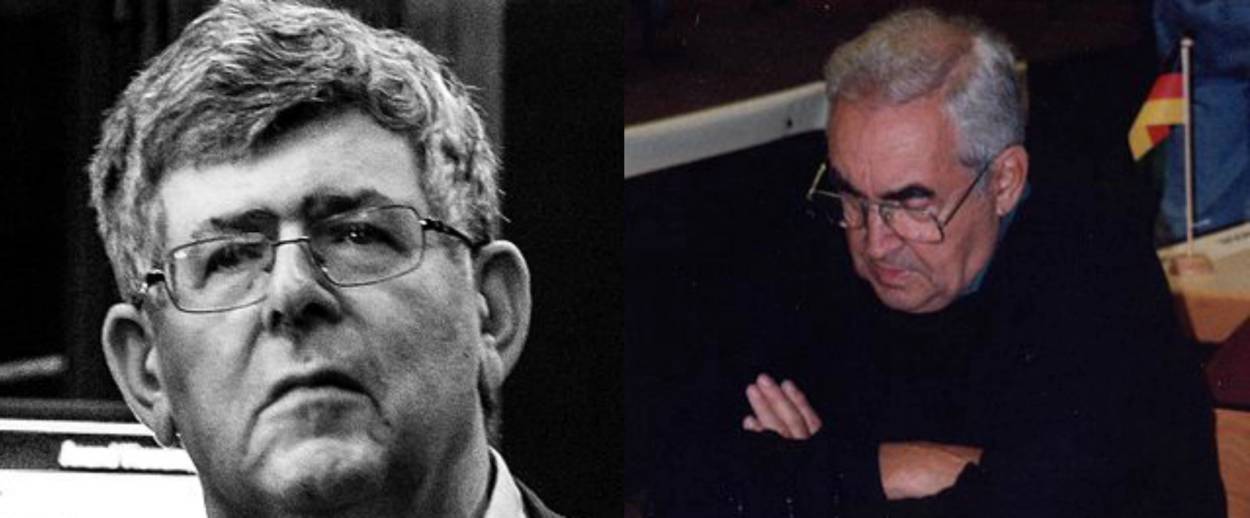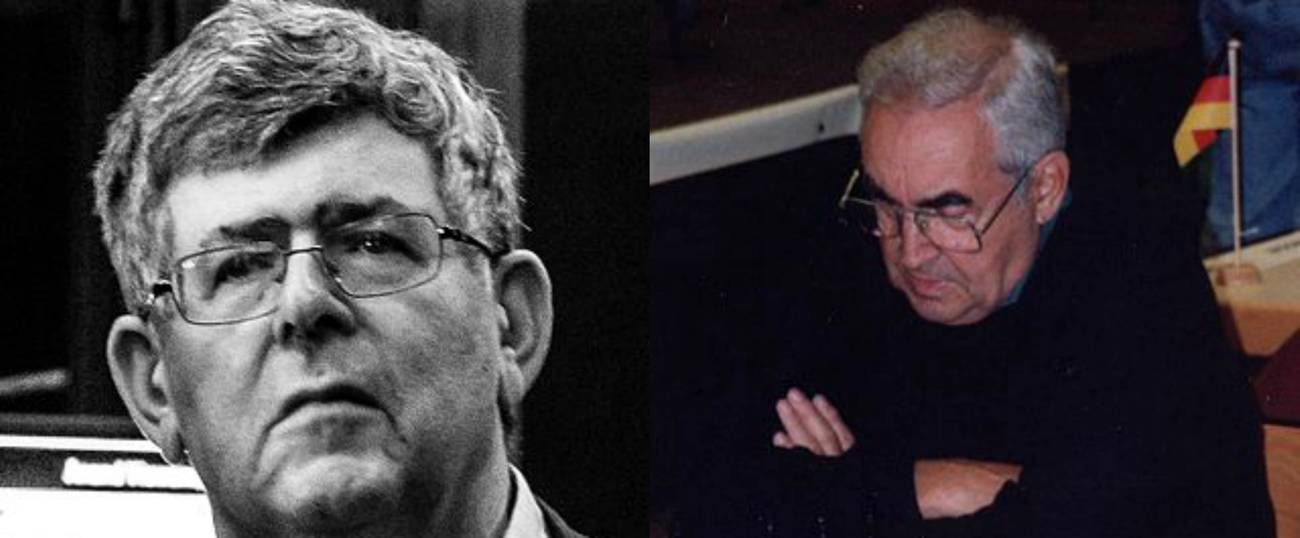Chess Loses Two Greats
Remembering Mark Taimanov and Mark Dvoretsky




On Wednesday, the World Chess Champion will be decided, as Magnus Carlsen of Norway and Sergey Karjakin of Russia will duke it out in a tie-breaker in Manhattan. That the championship is taking place stateside, and in New York no less, recalls important memories of Bobby Fischer, the last World Champion from the U.S.
But before Bobby Fischer became World Chess Champion in 1972, he first had to earn a spot in the title match. A year prior, in the Candidates Tournament, Fischer faced some all-time greats like Bent Larsen of Denmark and Mark Taimanov of the former Soviet Union, who at that point had been a top player for two decades. Taimanov faced Fischer in the first round and was quickly trounced, 6-0, a result that has been attached to his much larger legacy ever since. “The final score did not reflect the true balance of strength,” Taimanov, who was born in Ukraine, told Chessbase in 2002. “The terrible feeling that I was playing against a machine which never made any mistake shattered my resistance. Fischer would never concede any weakening of his position, he was an incredibly tough defender.”
As a result, the Soviet government bore down on him for losing, and for losing to an American in particular, he said.
The sanctions from the Soviet government were severe. I was deprived of my civil rights, my salary was taken away from me, I was prohibited from traveling abroad and censored in the press. It was unthinkable for the authorities that a Soviet grandmaster could lose in such a way to an American, without a political explanation. I therefore became the object of slander and was accused, among other things, of secretly reading books of Solzhenitsin. I was banned from society for two years, it was also the time when I separated from my first wife, Lyubov Bruk.
Taimanov, who died on Monday in St. Petersburg at the age of 90, was not only a world-class grandmaster, he was also an incredible classical pianist. He and Bruk, who met at the Leningrad Conservatory, formed a formidable musical team. The pair, reported the New York Times’s former chess columnist Dylan Loeb McClain, are the only duo included in Philips Classics 200-CD set, “Great Pianists of the 20th Century.”
Mr. Taimanov often said in interviews that one of his most cherished possessions was a photograph that showed him playing in the Capablanca Memorial tournament in Havana in 1964. Behind him, just over his left shoulder, is the Cuban revolutionary Che Guevara, who is staring intently at the game.
Mark Taimanov in play at the Capablanca Memorial Tournament, Havana 1964. Che Guevara looks on. (Source: unknown.) #chess pic.twitter.com/yph3folqtE
— Douglas Griffin (@dgriffinchess) November 28, 2016
Taimanov trained with Mikhail Botvinnik, and he shares the record for Soviet Championships with Efim Geller, at 23. As Chess.com reported, “a number of opening variations have been named after Taimanov in the Sicilian Defense (with …e6 and …Nc6), the Modern Benoni (with f2-f4), the Nimzo-Indian Defense (4.e3 Nc6), and in the King’s Indian Defense (with Ne1).”
*
Mark Dvoretsky, who died in late September, was a Russian international master and prolific chess author and teacher. After he died, Chess.com reported that a moment of silence took place at the Tal Memorial, a top-flight that took place in Moscow and began on the day Dvoretsky died.
Peter Doggers of Chess.com reported that although Dvoretsky never reached GM status, “it is universally agreed that he played at the level of a strong grandmaster” and at one point was the 35th-ranked player in the world.
Dvoretsky is seen as arguably the best chess trainer in the world; a reputation he built from the late 1970 onward in the Soviet Union. The fame was based on a unique and original training method, developed by Dvoretsky himself. It consisted of creating a “diagnosis” for each student, noting what were his skills and his weaknesses. His method combined lectures and practical training. For each skill, he had numerous chess positions in a huge database (written in an old computer language), dealing with e.g. intermediate moves, combinational vision, or prophylaxis. His collection includes thousands of positions.
I re read his books many a times. Am sure his work will be a cornerstone of preparation for many generations. He will be missed greatly(2/2)
— Viswanathan Anand (@vishy64theking) September 26, 2016
A legendary chess writer and coach Mark Dvoretsky passed away today. His books made me the player i am. A very sad day for the chess world..
— Levon Aronian (@LevAronian) September 26, 2016
Jonathan Zalman is a writer and teacher based in Brooklyn.